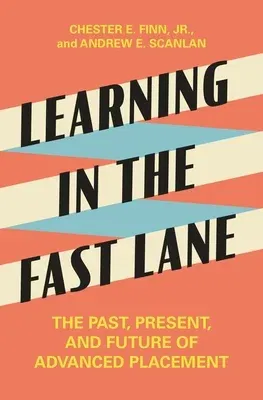The first book to tell the story of the Advanced Placement program,
the gold standard for academic rigor in American high schools
The Advanced Placement program stands as the foremost source of
college-level academics for millions of high school students in the
United States and beyond. More than 22,000 schools now participate in
it, across nearly forty subjects, from Latin and art to calculus and
computer science. Yet remarkably little has been known about how this
nongovernmental program became one of the greatest success stories in
K-12 education--until now. In Learning in the Fast Lane, Chester Finn
and Andrew Scanlan, two of the country's most respected education
analysts, offer a groundbreaking account of one of the most important
educational initiatives of our time.
Learning in the Fast Lane traces the story of AP from its
mid-twentieth-century origins as a niche benefit for privileged students
to its emergence as a springboard to college for high schoolers
nationwide, including hundreds of thousands of disadvantaged youth.
Today, AP not only opens new intellectual horizons for smart teenagers,
but also strengthens school ratings, attracts topflight teachers, and
draws support from philanthropists, reformers, and policymakers. At the
same time, it faces numerous challenges, including rival programs,
curriculum wars, charges of elitism, the misgivings of influential
universities, and the difficulty of infusing rigor into schools that
lack it. In today's polarized climate, can AP maintain its lofty
standards and surmount the problems that have sunk so many other bold
education ventures?
Richly documented and thoroughly accessible, Learning in the Fast Lane
is a must-read for anyone with a stake in the American school system.

